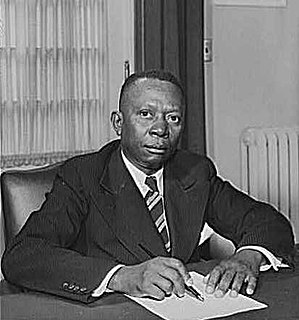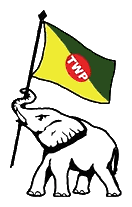
The 1860 United States presidential election was the nineteenth quadrennial presidential election to select the President and Vice President of the United States. The election was held on Tuesday, November 6, 1860. In a four-way contest, the Republican Party ticket of Abraham Lincoln and Hannibal Hamlin emerged triumphant. The election of Lincoln served as the primary catalyst of the American Civil War.

The United States presidential election of 1904 was the 30th quadrennial presidential election, held on Tuesday, November 8, 1904. Incumbent Republican President Theodore Roosevelt defeated the Democratic nominee, Alton B. Parker. Roosevelt's victory made him the first president to win a term in his own right after having ascended to the presidency upon the death of a predecessor.

The United States presidential election of 1908 was the 31st quadrennial presidential election, held on Tuesday, November 3, 1908. Secretary of War and Republican Party nominee William Howard Taft defeated three-time Democratic nominee William Jennings Bryan.

The United States presidential election of 1936 was the thirty-eighth quadrennial presidential election, held on Tuesday, November 3, 1936. In the midst of the Great Depression, incumbent Democratic President Franklin D. Roosevelt defeated Republican Governor Alf Landon of Kansas. Roosevelt won the highest share of the popular and electoral vote since the largely uncontested 1820 election. The sweeping victory consolidated the New Deal Coalition in control of the Fifth Party System.
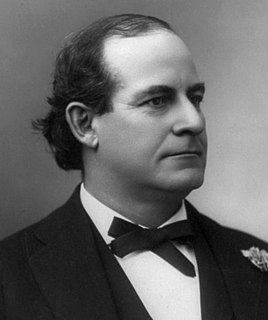
William Jennings Bryan was an American orator and politician from Nebraska. Beginning in 1896, he emerged as a dominant force in the Democratic Party, standing three times as the party's nominee for President of the United States. He also served in the United States House of Representatives and as the United States Secretary of State under Woodrow Wilson. Just before his death he gained national attention for attacking the teaching of evolution in the Scopes Trial. Because of his faith in the wisdom of the common people, he was often called "The Great Commoner".

William Michael "Bill" Daley is an American lawyer, politician and former banker. He served as White House Chief of Staff to President Barack Obama, from January 2011 to January 2012. He also served as U.S. Secretary of Commerce, from 1997 to 2000, under President Bill Clinton. He has also served on the executive committee of JPMorgan Chase & Co. Daley was a candidate for Governor of Illinois in the 2014 gubernatorial election, until dropping out of the race on September 16, 2013. He ran in the 2019 Chicago mayoral election but came in third in the first-round voting, and did not advance to the runoff.
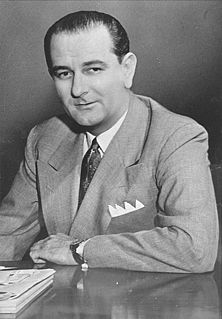
The 1958 United States Senate elections were elections for the United States Senate which occurred in the middle of President Dwight D. Eisenhower's second term. As is common in midterm elections, the party in the White House lost seats, but losses this year were more than usual, perhaps due to the high unemployment of the Recession of 1958. The Eisenhower Administration's position on right-to-work issues galvanized labor unions which supported Democrats. The launch of Sputnik may also have been a factor.

The United States Senate elections of 1926 were elections for the United States Senate that occurred in the middle of Republican President Calvin Coolidge's second term. The Republican majority was reduced by six seats.

The United States Senate elections of 1924 were elections for the United States Senate which coincided with the election of Republican President Calvin Coolidge to a full term. The strong economy and Coolidge's popularity helped Republican candidates increase their majority by four, although several interim appointments had worsened their numbers since the 1922 election; as a result, the party achieved a net gain of only one seat since the previous voting cycle.

Elections to the United States House of Representatives were held in 1900 for members of the 57th Congress, coinciding with the re-election of President William McKinley.

Elections to the United States House of Representatives were held in 1898 for members of the 56th Congress, and took place in the middle of President William McKinley's first term.
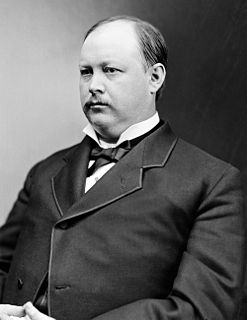
Elections to the United States House of Representatives were held in 1896 for members of the 55th Congress, coinciding with the election of President William McKinley.
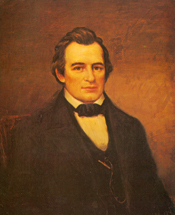
Elections to the United States House of Representatives for the 28th Congress were held during President John Tyler's term at various dates in different states between August 1842 and February 1844.

Elections to the United States House of Representatives for the 20th Congress were held at various dates in each state in 1826 and 1827 during John Quincy Adams' term in office.
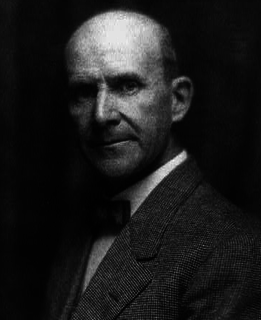
The 1908 United States presidential election in California refers to how California participated in the 1908 United States presidential election. California voted for the Republican nominee, former War Secretary William Howard Taft, in a landslide over the Democratic nominee, former Nebraska representative and the 1896 and 1900 nominee, William Jennings Bryan.
The United States Senate elections of 1830 and 1831 were elections that had Jacksonians gain one seat in the United States Senate from the Anti-Jacksonian coalition, but lose one seat to the short-lived Nullifier Party. By the time Congress first met in December 1831, however, the Jacksonians had a net loss of one seat.

The 1896 United States elections elected the 55th United States Congress. Republicans won control of the Presidency and maintained control of both houses of Congress. The election marked the end of the Third Party System and the start of the Fourth Party System, as Republicans would generally dominate politics until the 1930 elections. Political scientists such as V.O. Key, Jr. argue that this election was a realigning election, while James Reichley argues against this idea on the basis that the Republican victory in this election merely continued the party's post-Civil War dominance. The election took place in the aftermath of the Panic of 1893, and featured a fierce debate between advocates of bimetallism and supporters of the gold standard.
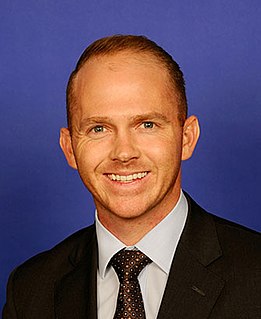
William Richardson Timmons IV is an American attorney, entrepreneur, and politician from South Carolina. He is the United States Representative for South Carolina's 4th district. He served as a State Senator in the South Carolina Senate from the 6th district 2016 to 2018. He is a member of the Republican Party.

The 1932 San Diego mayoral election was held on April 26, 1932 to elect the mayor for San Diego. Incumbent mayor Walter W. Austin did not stand for reelection. In the primary election, John F. Forward Jr. and William E. Harper received the most votes and advanced to a runoff election. Forward was then elected mayor with a majority of the votes in the runoff.


